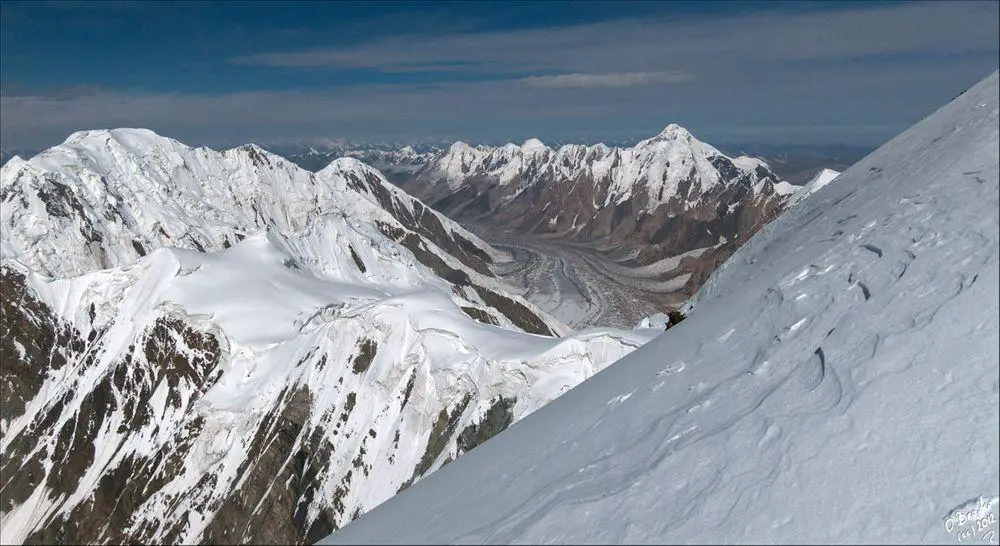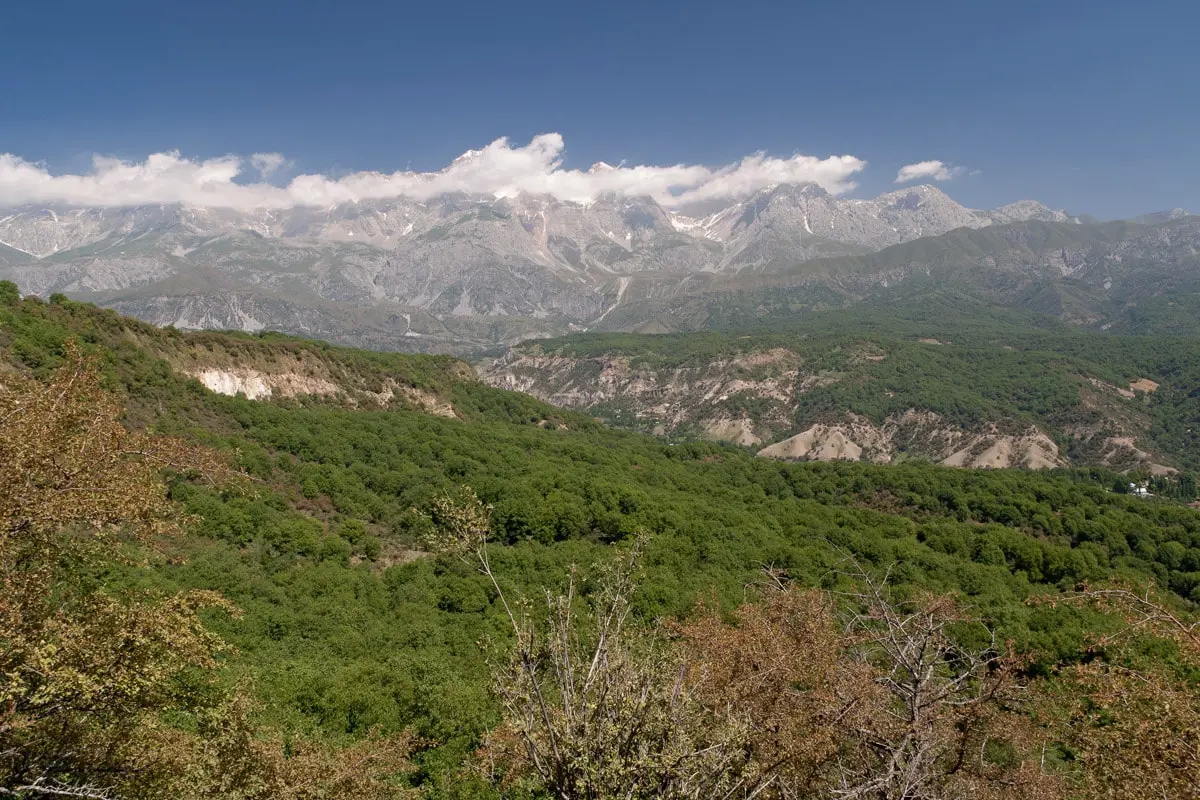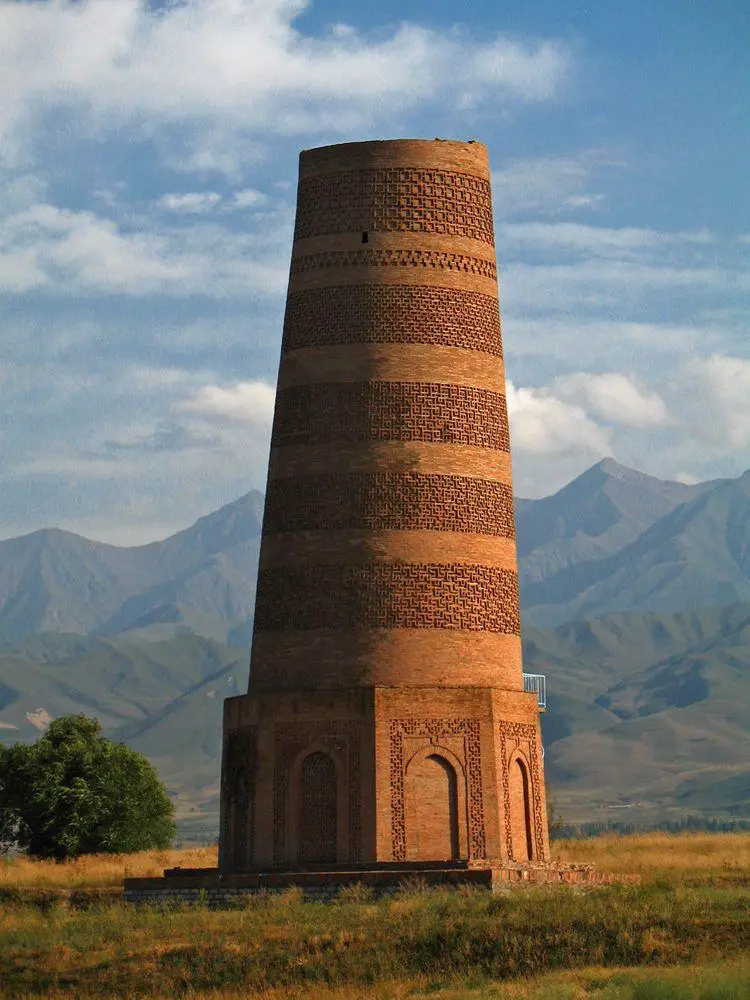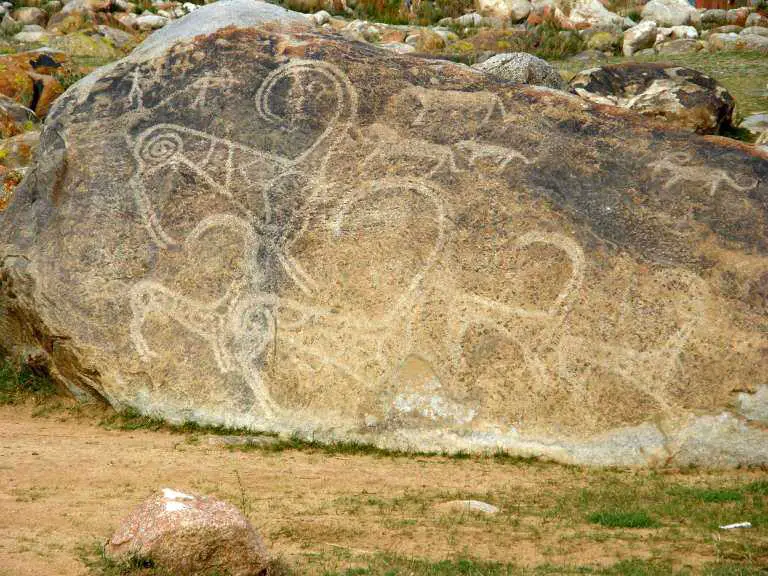Wondermondo 🢖 World 🢖 Wonders of Asia 🢖 Wonders of Kyrgyzstan
Territory
Wonders of Kyrgyzstan

 Highlights
Highlights
Kyrgyzstan is a landlocked mountainous country with impressive scenery.
The most amazing wonders of Kyrgyzstan are linked to its past, especially to the ancient and medieval times when Silk Road through the country was in active use.
Here are found abandoned cities and fortresses, high up in the mountains are caravanserais – ancient shelters for travelers, thousands of prehistoric and ancient petroglyphs are found near mountain passes and elsewhere.
Map with the described wonders
If you see this after your page is loaded completely, leafletJS files are missing.
 Top 25 wonders of Kyrgyzstan
Top 25 wonders of Kyrgyzstan
Geological wonders
Merzbacher Lake
Issyk-Kul
This lake has formed on a glacier and consists of two parts – upper and lower. Lake formed in the 19th century and twice per year – in summer and in winter the lower part flows away. This outburst causes floods and the flow rate may exceed 1,000 m³ per second.
Kan-I-Gut Cave
Batken
Long cave with amazing speleothems including up to 6 m tall gypsum “chandeliers”. In the 10th and 11th centuries and also later this cave was an important mine of silver. There are many stories about hidden treasures. Recently investigated part of the cave is 3.5 km long but there are stories that cave is more than 30 km long – some name even 300 km.
Suluu-Terek Canyon
Chuy, Issyk-Kul
Impressive canyons with tall, picturesque cliffs.
Jeti-Ögüz Rocks
Issyk-Kul
Gorge with interesting cliffs, such as the group of cliffs called “Seven Bulls”.
Sokuluk Falls
Chuy
Approximately 60 m tall waterfall with a single, impressive leap.
Abshir Ata Falls and Abshir Say Gorge
Osh
Abshir Say river starts with a waterfall that comes out from the cave. This waterfall is some 30 m tall and many locals believe that its water has curative properties.
Arslanbob Great Falls (Arslan Bob Fals)
Jalal-Abad
Tall waterfall that slides down along nearly vertical cliff face. One cascade is 60 m tall, the other one – 80 m tall.
Biological wonders
Arslanbob Forest
Jalal-Abad
A large forest of wild walnut (Juglans regia), the main genetic pool of walnuts. Alexander the Great took walnuts from this forest to Europe. This is the world’s largest walnut forest with an approximate area of 11,000 ha. Here grow other species of rare fruit trees too.

Archaeological wonders
Sulayman-Too Sacred Mountain (Taht-I-Suleiman)
Osh
An ancient sacred mountain that is worshiped for several millennia. Now it is a Muslim pilgrimage destination. According to legends here is located burial of Prophet Sulayman. On the tallest summit is a mosque that was built in 1510, there is one more mosque from the 16th century as well as caves with petroglyphs.
Cholpon-Ata petroglyphs
Issyk-Kul
Numerous boulders on a slope of a valley that have been adorned with some 2,000 petroglyphs in the time period from 800 BC to 1200 AD.
Shorobashat
Osh
Remnants of an ancient fortified settlement. Its fortification wall is up to 6 m tall and encloses large (approximately 70 ha) area that is divided into four parts. The city flourished in the 4th – 1st century BC.
Suyab (Ak-Beshim)
Chuy
Ruins of an ancient Silk Road city that developed as a Sogdian trade city in the 5th or 6th century AD. Remnants of the city cover some 30 ha and include remains of Christian, Buddhist, and Zoroastrian shrines, and Chinese fortifications. There were found also steles – Turkic balbals.
Burana balbals
Chuy
Group of approximately 1 m tall stone statues with carved human faces. These statues were made and erected over the gravesites around the 6th century AD. Now a group of balbals is collected from the whole country and placed near Burana Tower.
Saimaly-Tash petroglyphs (Saimaluu Tash)
Jalal-Abad
Rich find of prehistoric petroglyphs with more than 10,000 known drawings. It is estimated that these petroglyphs were made in the time period from 2000 BC to the Middle Ages. For most of the year, this site is covered with snow.
Katvan Cave
Batken
Cave with prehistoric cave paintings.
Chil Ustin Caves (Chil Ustun)
Osh
380 m long cave that is adorned with stalactites and crystals. On the walls of the cave are ancient inscriptions, also in Sanskrit. Some crystals emit a sound when the wind is blowing.
Architecture wonders
Uzgen
Osh
A historical city, the former capital of Karakhanids. First mentioned in the 2nd century BC. Here are located several ornate buildings from the 11th – 12th centuries – three mausoleums and one minaret.
Burana Tower
Chuy
An impressive minaret in the ancient, ruined city of Balasagun (the former capital of Kara-Khanid Khanate). This minaret was built in the 11th century AD. Originally this tower was 45 m high but an earthquake partly ruined it and now this tower is 25 m tall.

Shakh Fazil
Jalal-Abad
Sacred Islamic site, pilgrimage site. The main site here is the Tomb of Shah Fadl, probably built in the time period between 1050 and 1060 AD. Some other important buildings are here, e.g. Safed-Bulan Mausoleum, Alamberdar Mausoleum, and stone steles.
Manas Ordo
Talas
Park with a museum and Manas’s Kümböz – ornate medieval building – mausoleum where supposedly has been buried Kyrgyz national hero Manas. This Karakhanid-era structure was built sometime around 1334.
Koshoi Korgon (Qoshoy Qorgon)
Naryn
Ruins of an ancient fortress that most likely was built around the 9th – 12th century AD. Remnants of 4 – 8 m tall walls enclose a 250 by 245 m large area.
Nevakhet (Krasnaya Rechka)
Chuy
Remnants of an ancient Silk Road City that was built by Sogdians in the 8th – 12th century AD. This was a multicultural city with Buddhist, Christian, Islamic, and Zoroastrian shrines.
Shyrdakbek
Naryn
Ruins of an ancient fortress – possible headquarters of local rulers in the 9th – early 13th centuries AD. 6 m high walls enclose an area that is 120 by 117 m large.
Manakeldy
Naryn
Medieval caravanserai at the altitude of 2,500 m. It was in active use in the 10th – 12th centuries.
Karakol St. Trinity Orthodox Church
Issyk-Kul
Large wooden church with interesting architecture, built in 1895.
 Recommended books
Recommended books
Kyrgyzstan (Bradt Travel Guide)
One of the most beautiful countries in the world, Kyrgyzstan has it all: glorious mountain scenery, a rich nomadic tradition, Silk Road monuments, and thrilling wildlife. Author and seasoned traveler Laurence Mitchell is an expert in the country and in this fully updated edition details all the services and experiences on offer, including trekking, mountaineering, horse riding, historical sites, festivals, and Kyrgyz culture.
I Drank My Tea: Family Adventures in Kyrgyzstan
Mary and Tracy Atwood moved with their three teenage children to Bishkek, Kyrgyzstan in the fall of 1999. This memoir describes the joys and challenges of expatriate family life in Kyrgyzstan. Formal education had to continue in some way, and new languages had to be learned. A few hardships had to be endured, but they were largely overshadowed by the opportunity to know people of two different cultures. Go with the family as they are guests in various Kyrgyz and Russian homes.



